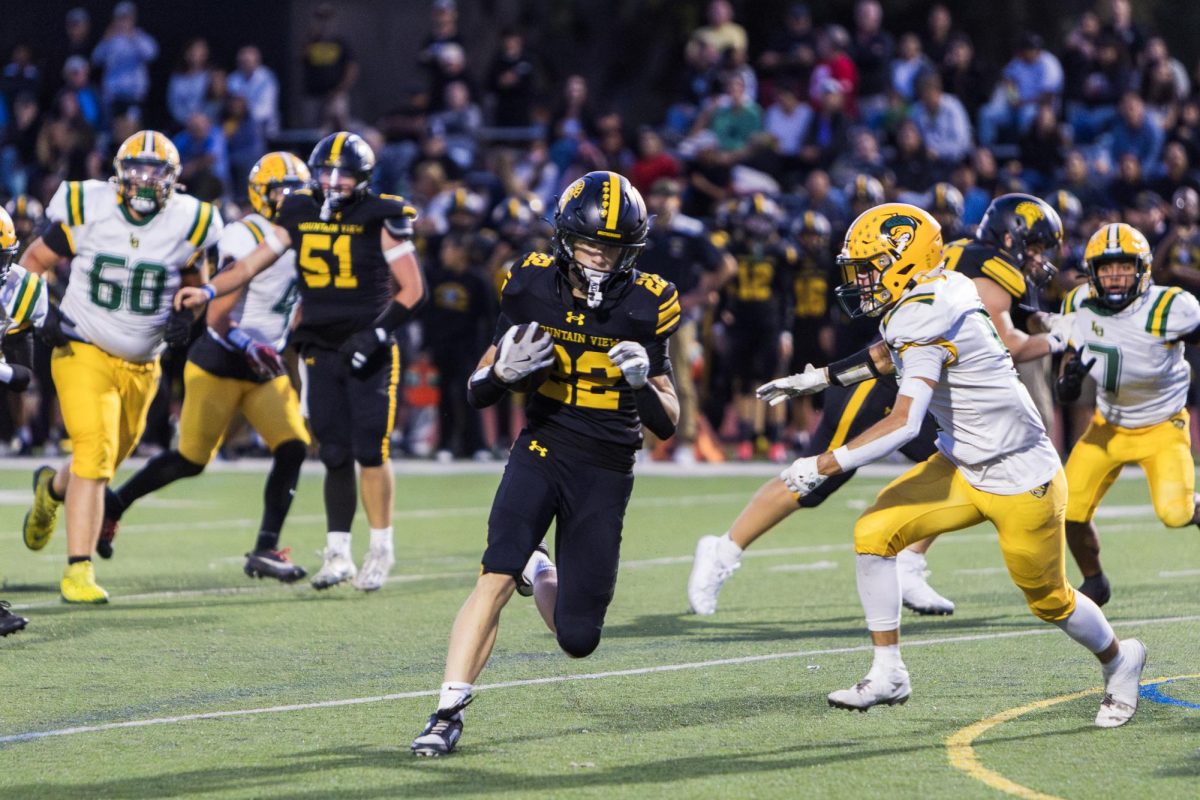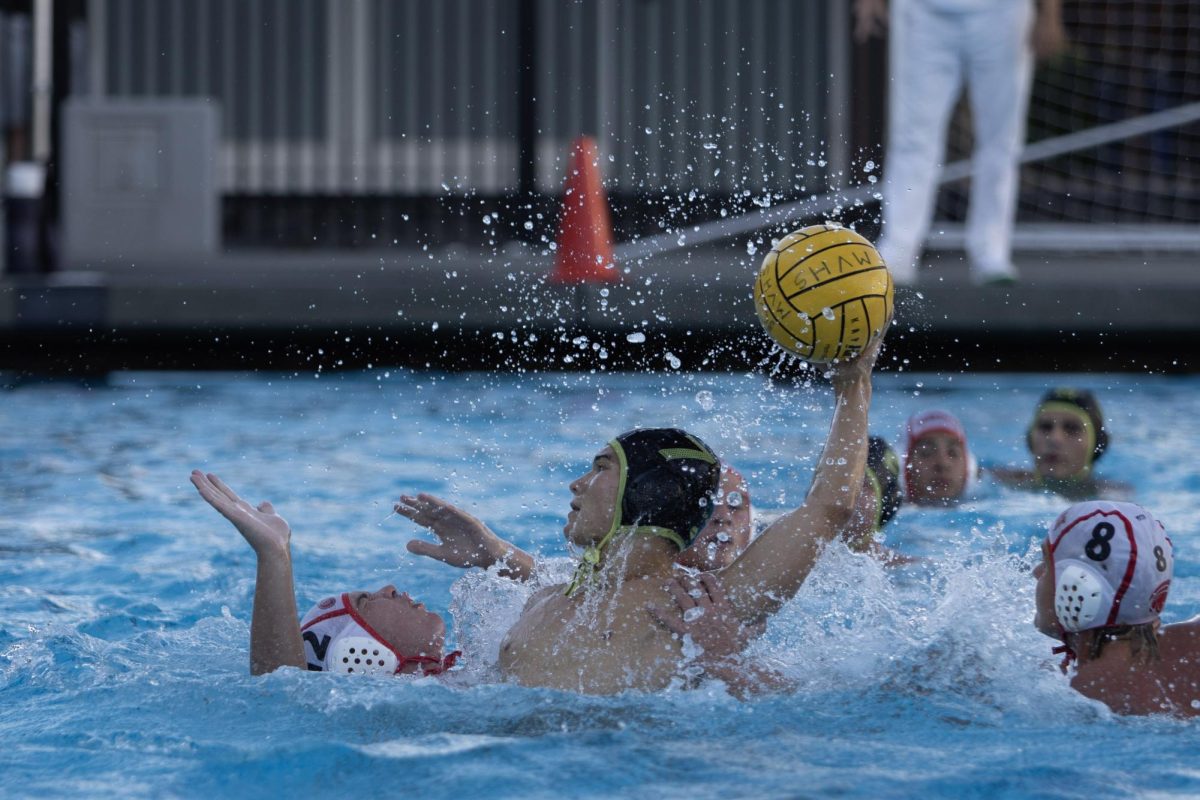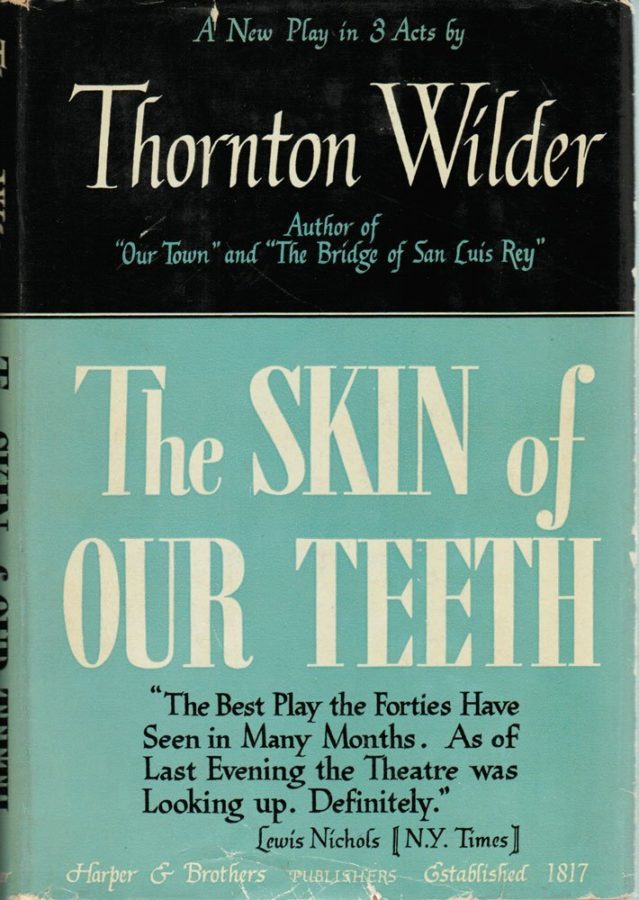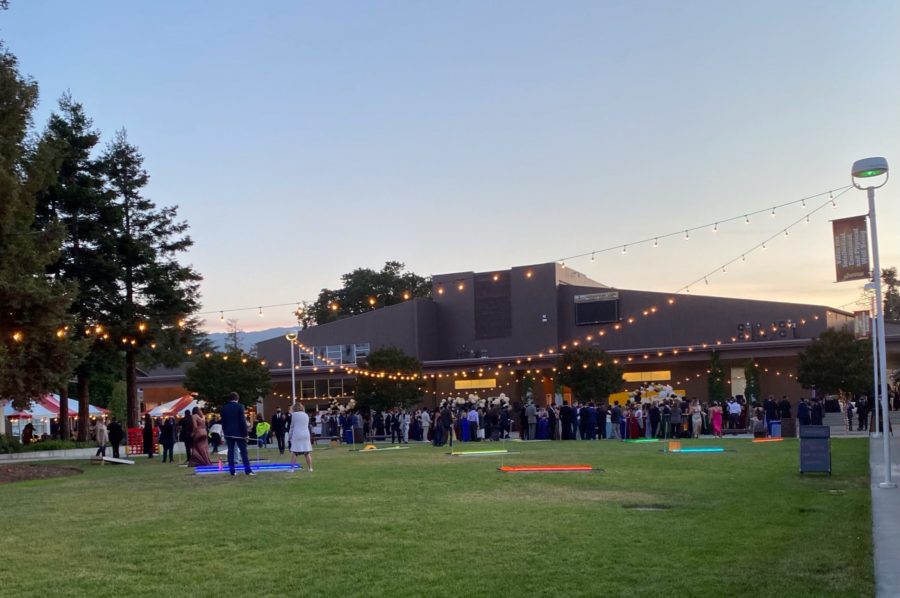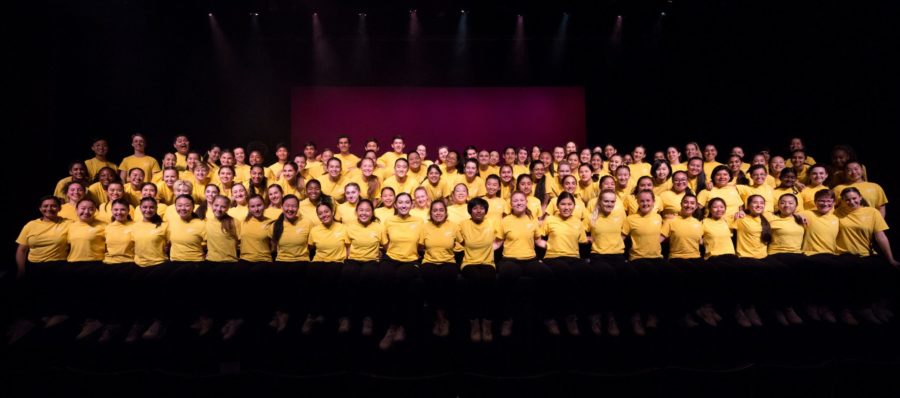What a piece of work is a man, how noble in reason, how
infinite in faculties, in form and moving how express and
admirable, in action how like an angel, in apprehension how like
a god! The beauty of the world, the paragon of animals—and yet,
to me, what is this quintessence of dust? Man delights not me…
-Hamlet (II, ii)
Thornton Wilder and the Mountain View High School theatre community have blessed us. Through the highly professional acting of the student cast and the extensive, behind-the-scenes work of stage manager Micaela Sinclair, technical director Mike Gurnari, assistant director Grace Nuckolls, director and acting teacher Rob Seitelman, and countless others, the work of Wilder has graced the MVHS stage in the form of the abstract, creative, and thought-provoking comedy, The Skin of Our Teeth.
Split into three acts, the play features the complex yet quintessentially human Antrobus family (similar to the Greek root anthropo-, meaning “human”) and their maid, Sabina, who find themselves in a neverending loop of building, destruction, suffering, and rebuilding. The roles of Mr. and Mrs. Gladys, Henry Antrobus, and Sabina were played by Luke Knight, Shayda Dehnow, Aliza Keller, Willem Geier, and Tatem Millet, respectively.
“[The play is] about a dysfunctional family that represents the achievements and faults of man from the Stone Age [up to] today,” Knight said.
The three acts are based around three disasters: the first is a wall of ice (like the expulsion of Adam and Eve from Eden), the second is a flood (similar to Noah’s Ark), and the third is a war (the Apocalypse). Through these three acts, the audience watches the lives of the Antrobuses, filled with the everyday struggles of a family as well as the other more dramatic conflicts, as they follow the aforementioned cycle, surviving apocalyptic situations and reconstructing after.
Dehnow, Knight, Keller, and Geier all skillfully manage to be both the essences of the “first” man and the modern man at once, embodying a mix of the beginning and the middle of humankind.
This production, as well as the next few productions to be performed on the MVHS stage during the 2014-2015 theatre season, is the manifestation of the season’s essential question: “What a piece of work is a *man?” (Hamlet II, ii). From Shakespeare’s acclaimed play, Hamlet, written between 1599 and 1602, this quote is only a piece of the larger passage which discusses the infinite powers of mankind, but perhaps its misuse (see above). Another facet of this essential question will be addressed in the next MVHS production of The Laramie Project: Ten Years Later, about the reaction to the murder of a gay student, Matthew Shepard, at the University of Wyoming.
The Skin of Our Teeth, which first opened publicly in 1942, was written during the aftermath of the bombing of Pearl Harbor in 1941. Similarly, the play evokes memories of 9/11 as we are taken with the Antrobuses through this cycle of destruction and rebuilding, like our nation in the wake of the attack.
As such, “this is a play about humanity and it’s own survival,” Geier, who played Henry Antrobus, said.
“As we began rehearsing for this play, the events of September 11th 2001 loomed large in my mind,” Seitelman said in his Director’s Note in the play’s program.
The Antrobuses thus represent all of mankind and its ability to destroy and recreate, its adaptability and will.
“Through anachronism, breaking of the fourth wall, and even a breakdown of the agreed-upon reality of the play itself, Wilder requires his audience to decide for ourselves the answer to [the question of whether humanity is worth saving],” Seitelman said.
This attention to the overall message and detail of the play is apparent in the final product; the actors, directors, stagecrafters, and managers truly immerse the audience in the chaotic lives of the Antrobuses and cause them to consider the point of rebuilding and the willpower of the family to repeat this action over and over again.
However, the words and acting in The Skin of Our Teeth do not stop at being strikingly thought-provoking, they excel at the art of entertainment and are written and performed as a comedy. And, though obviously difficult, the cast and crew weave laughs into the otherwise intense plot with characters like an old bingo player, played by Ryan Rathbun, a down-to-earth/crazy fortune teller, played by Julia Chalker, and two strange pets, a dinosaur and mammoth, among others.
The process of producing the play itself, consequently, was one of growth and bonding, not only through the teamwork necessary for successfully conveying all that Wilder was attempting to convey in a comedy, but also through the time and effort collectively spent together perfecting this production.
“The thing about theatre is that we started from pretty much nothing, just a bunch of people sitting in a circle, reading a script, and now we have a set, costumes, lights, an amazing cast and crew, and it’s still just as magical,” Grace Nuckolls, the assistant director, said.
“Acting breaks the barriers of age, grade and any other obstacles, and you know that if you enter a show, no matter what the end state of the performance, you will leave with an amazing group of new friends,” Shubha Chakravarty, who played the stage manager, said.
Wilder and the close-knit cast and crew whose efforts made the production of The Skin of Our Teeth possible, ask us to ponder the worth of humanity. They creatively and successfully ask us to contemplate our own struggles in the modern world and to realize the capability of humanity to both create and destroy.
“It is only if we really understand our power as human beings that we will truly make the powerful choice to be forces for good in this world, working together to bring about universal peace through creativity,” Seitelman said.
Congratulations to the entire cast and crew of this MVHS production for truly honoring Wilder’s legacy and bringing to us an indisputably amazing and thoughtful rendition of The Skin of Our Teeth.









